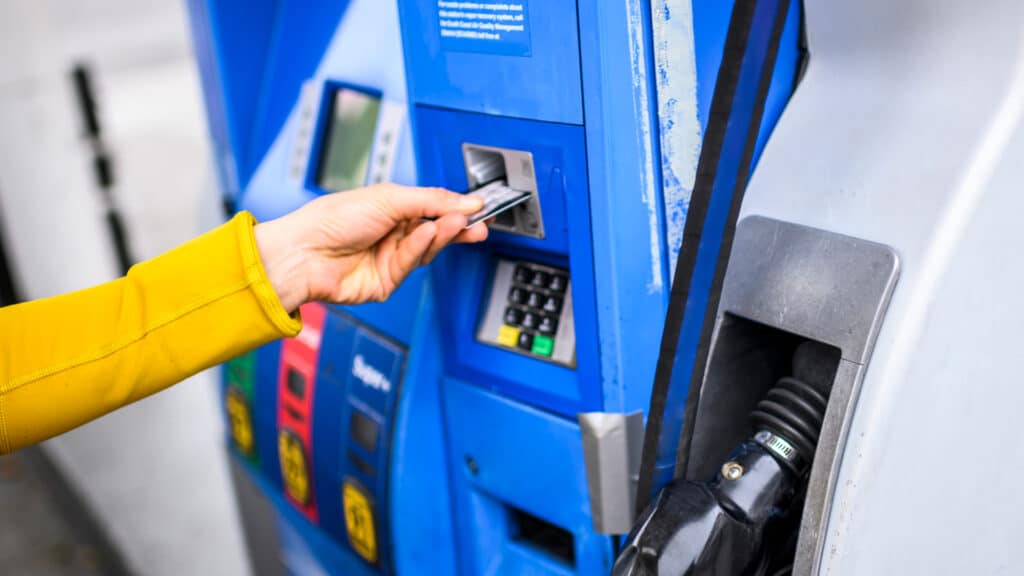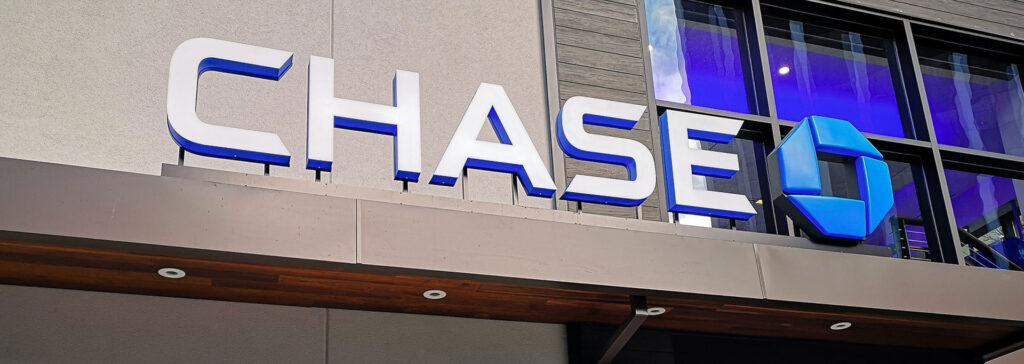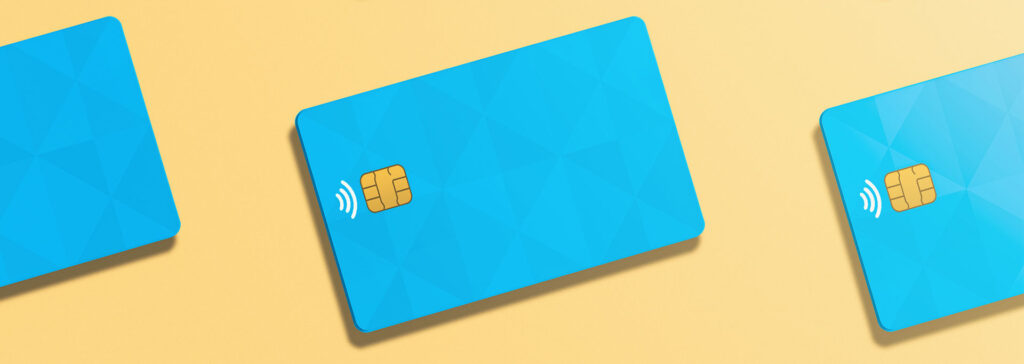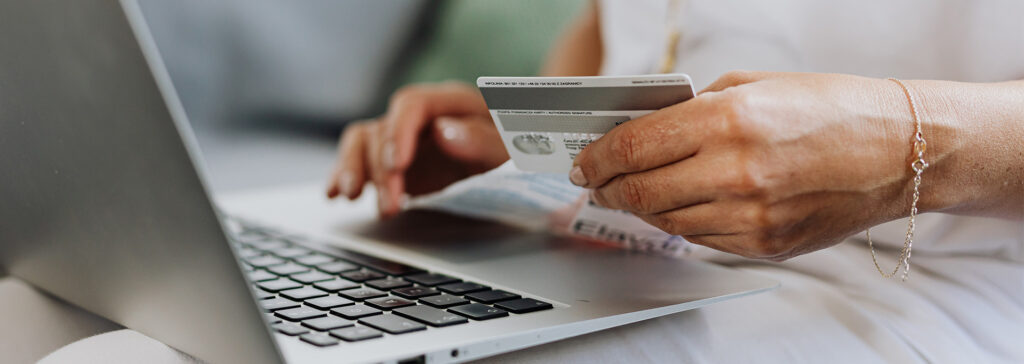Most products on this page are from partners who may compensate us. This may influence which products we write about and where and how they appear on the page. However, opinions expressed here are the author's alone, not those of any bank, credit card issuer, airline or hotel chain. This page may include information about American Express products currently unavailable on Slickdeals. American Express is not a partner of Slickdeals.
If you have a significant expense coming up, a personal loan can be a way to pay for these expenses without having to dip into your emergency savings. Whether it's to pay for a wedding or remodel your home, personal loans offer relatively quick and easy access to cash for most consumers. However, a personal loan has risks and potential drawbacks. So, before considering this option, consider the pros and cons of personal loans, as well as what the alternatives are.
What Are Personal Loans Used for?

A personal loan allows you to borrow a lump sum of money with an installment loan agreement. Since personal loans are typically unsecured, you don't have to offer collateral to receive the money.
In most cases, you can use a personal loan for almost any purpose, including:
- Consolidating high-interest debt
- Emergency expenses
- Relocation costs
- Medical bills
- Home improvements
- Travel and vacation expenses
- Auto repairs
Personal loans are also offered at a fixed interest rate, meaning the interest payment is not subject to upper or downward spikes due to market conditions. This can make the payments more predictable and easier to budget for.
Pros & Cons of Personal Loans
In certain situations, personal loans have distinct advantages over other types of loans. Here are the benefits and drawbacks to consider.
Pros
- Quick access to lump-sum funds
- Flexible borrowing terms
- Versatile uses
- Better rates than credit cards
- Helps build credit
- Collateral not usually required
Cons
- Rates may be high for borrowers with poor credit
- Possible fees and penalties
- Can contribute to more debt
- Missing payments can hurt credit
Personal Loan Pros
Quick Access to Funds
Since personal loan lenders offer fast approvals and funding times, personal loans may be suitable for emergencies and immediate cash needs. The typical approval time is one to seven business days, with some offering next business day cash delivery depending on your credit score, lender requirements and the application process. To find the best approval and payment times, you can shop around among the available personal loan lenders.
Unsecured Personal Loans Don't Require Collateral
Since a personal loan is unsecured, you can get your loan approved without offering your house, car or investment assets as collateral. As a result, the lender can't seize your assets if you default on the lending agreement. Nevertheless, you could receive other substantial financial penalties if you don't meet your loan obligation.
Flexible Borrowing Limits
Most personal loan lenders usually offer loans between $1,000 and $100,000. As a result, you can adjust the loan amount to suit your needs. However, qualifying for a $100,000 personal loan is much harder than a smaller loan amount.
Whether you need a small loan or a hefty sum for major expenses, personal loans offer borrowers relatively quick access to loan funds. While spending $1,000 through a credit card or other credit means can also be easy, few loan types can offer quick and simple access to $60,000 like a personal loan can.
Competitive Rates
The general range for personal loan annual percentage rates (APRs) can be between 6% to 36%, with the lowest rates only available to highly qualified applicants. In general, those with stellar credit history can typically enjoy personal loan rates that are much lower than the average credit card rate. But personal loan APRs typically can't compete with the lower rates of secured home equity loans.
Credit Building Tool
A personal loan has the same structure as credit cards and other loans. After you receive your money, you make monthly payments toward the outstanding balance and interest charges. Also, most lenders report your payment history to the major credit bureaus, including TransUnion, Experian and Equifax.
Since 35% of your FICO credit score relies on payment history, you can boost your credit score by maintaining a consistent and prompt personal loan payment record. In addition, your good payment history can increase your eligibility for even better credit offers.
Versatile Uses
Unlike a mortgage that must be used for a home purchase or an auto loan that is used to buy a vehicle, a personal loan can be used for a variety of purposes. Personal loans can be used to pay for a wedding or used to consolidate debt. If you're unemployed and need a loan, the funds can be used to pay for your bills and rent. The borrower can spend the personal loan on any expense they want, whether it is planned or unplanned.
Flexible Loan Terms
Loan terms for a personal loan vary from one lender to the next. But the loan periods typically range from two to ten years, giving you the leeway to pick a shorter payoff period or stretch out your payments.
In contrast, payday loans provide a payment schedule of a month or two with ultra-high interest rates, while credit cards feature revolving credit with fixed, high-interest rates. Personal loans allow you to choose the most advantageous loan term for you/
Helps Make Debt More Manageable
Personal loans can help with debt consolidation by lowering the overall debt owed. For example, managing credit card debt can be confusing and overwhelming if you have several credit card accounts with high balances and various interest rates. A personal loan can offer a way to combine high-interest credit card debt into single fixed-rate monthly payments to help pay off credit card debt faster.
Meeting your monthly debt obligation is more manageable with a single payment, due date, and interest rate. Also, if you qualify for a lower interest rate, your personal loan can save you money by lowering your monthly payments.
 Related Article
Related Article
How to Prequalify for a Personal Loan, and Why It Can Be a Good Idea
Personal Loan Cons
Personal Loan Fees and Penalties
When you secure a personal loan, your total cost usually includes the interest and origination (processing) fees. On top of that, you could incur penalties for late payments or payments with insufficient funds. Some personal loan lenders may even charge prepayment penalties. Make sure you understand the full costs of a personal loan along with any financial consequences of not fulfilling the monthly payments.
Challenges for High-Risk Borrowers
Those with low credit scores are considered high-risk borrowers, which means lenders may only offer higher interest rates or require a collateral for the loan. Collateral for a personal loan can include a cash deposit, vehicle or other asset. This loan condition could lead to the lender keeping the collateral if you don't meet your loan obligation, making personal loans a risky option for some borrowers.
Potential High-Interest Charges
Personal loans are not a friendly opportunity for people with low creditworthiness or unestablished credit. If your FICO credit score doesn't qualify for a low APR, your interest rate could go as high as 36%. Assess whether paying a high interest rate is worth the expense you're taking out the loan for.
Possible Credit Impact
Since personal loan lenders report your entire payment history to credit bureaus, your credit score could drop if you don't make on-time payments or default on your loan. Also, your personal loan balance can negatively affect your credit score by increasing your debt-to-income ratio—almost a third of your FICO credit score depends on the size of your outstanding debt balances.
Increases Debt Load
Taking out a personal loan that you cannot afford to repay can contribute to more debt. If you secure a $60,000 personal loan at 10.3% for ten years, your monthly payment would be $802.91. This obligation can put a severe strain on your monthly budget. Before you go through with a personal loan, you should ensure your budget allows you to cover such a large payment amount for ten years.
What Are the Alternatives to Personal Loans?

After you evaluate the pros and cons of personal loans, you may decide that it may not be the right financing choice for your needs. There are some other viable alternatives to personal loans that are worth considering.
Alternatives to personal loans can include:
- A home equity loan: Depending on your creditworthiness, you may get an interest rate between 6% to 8% for a lump sum home equity loan.
- A home equity line of credit (HELOC): HELOCs may offer the same low-interest rate as a traditional home equity loan. However, you only pay interest on the balance of the money you borrow on the line of credit.
- 0% intro APR credit card offers: Certain credit cards may offer a 0% intro APR on purchases or balance transfers within a specific timeframe. These credit accounts can streamline and reduce your credit card debt if used wisely. However, your maximum savings benefit depends on you paying off the balance before the end of the zero-interest period.
The downside with secured home equity and HELOC loans is you must offer your home as collateral, exposing you to the risk of losing your home if you default on the loan.
Quick Tip
If the interest rates are too high for a personal loan to make sense, consider a balance transfer card with a 0% intro APR instead. There are plenty of options where the intro rate applies for 15-21 months. Use our balance transfer calculator to see how much you can save compared to a loan.
BankAmericard® Credit Card

This product is currently not available via Slickdeals. All information about this product was collected by Slickdeals and has not been reviewed by the issuer.
- APR16.24% - 26.24% Variable APR
- Annual Fee$0
The BankAmericard® Credit Card is a top choice, offering a way to move over existing debt and pay it off over the next year. While it lacks perks, this card's intro APR offer is a great way to pay off credit card debt interest-free.
Overview
This card offers one of the longest 0% introductory periods for balance transfer cards with 21 billing cycles if the transfer is made in the first 60 days of account opening. After the intro APR period, a 16.24% – 26.24% variable APR is applied. The downside is there aren’t any other benefits to having this card, but that’s not uncommon for the best balance transfer cards. So if you have a big purchase planned or want to move a balance from another card to save money on interest, this is a great card.
Pros
- Offers one of the longest 0% intro periods on balance transfers
- No annual fee
- No penalty APR
Cons
- Doesn't offer any other perks
Is a Personal Loan Right for You?
When you review the pros and cons of personal loans, you may realize that a personal loan can work for you if you need quick funding, need to consolidate high-interest debt or plan to make a value-adding purchase, such as a home improvement. On the other hand, a personal loan may not make financial sense if you plan to spend the money on non-essential items, have an overspending problem, have bad credit or lack an immediate need for the money.
FAQs
-
It is not unusual for people to simultaneously have a mortgage, student loan, auto loan and personal loan. If you can afford to make the monthly payments, multiple debt obligations may be manageable for you.
-
The cost of your personal loan depends on your loan’s interest rate and terms, which will depend on your credit history. Along with the interest payments, lenders typically charge between 1% and 5% in origination fees. For example, the initial cost may be $2,400 for a $60,000 personal loan with a 4% origination fee. Also, you could be subject to late fees or early payoff fees throughout the loan period.
-
You can pay off your personal loan anytime you want. However, while most lenders don’t charge a prepayment or early payoff penalty, some do. Check the fine print in your personal loan agreement to see if there are any financial consequences to paying a personal loan off early.
-
You can use your personal loan for almost any personal purpose since they are usually not backed by any collateral. The most important thing to the lender is your ability to repay the loan. However, you should consider whether a non-essential expenditure is worth the extra expense of taking out an unsecured personal loan.









